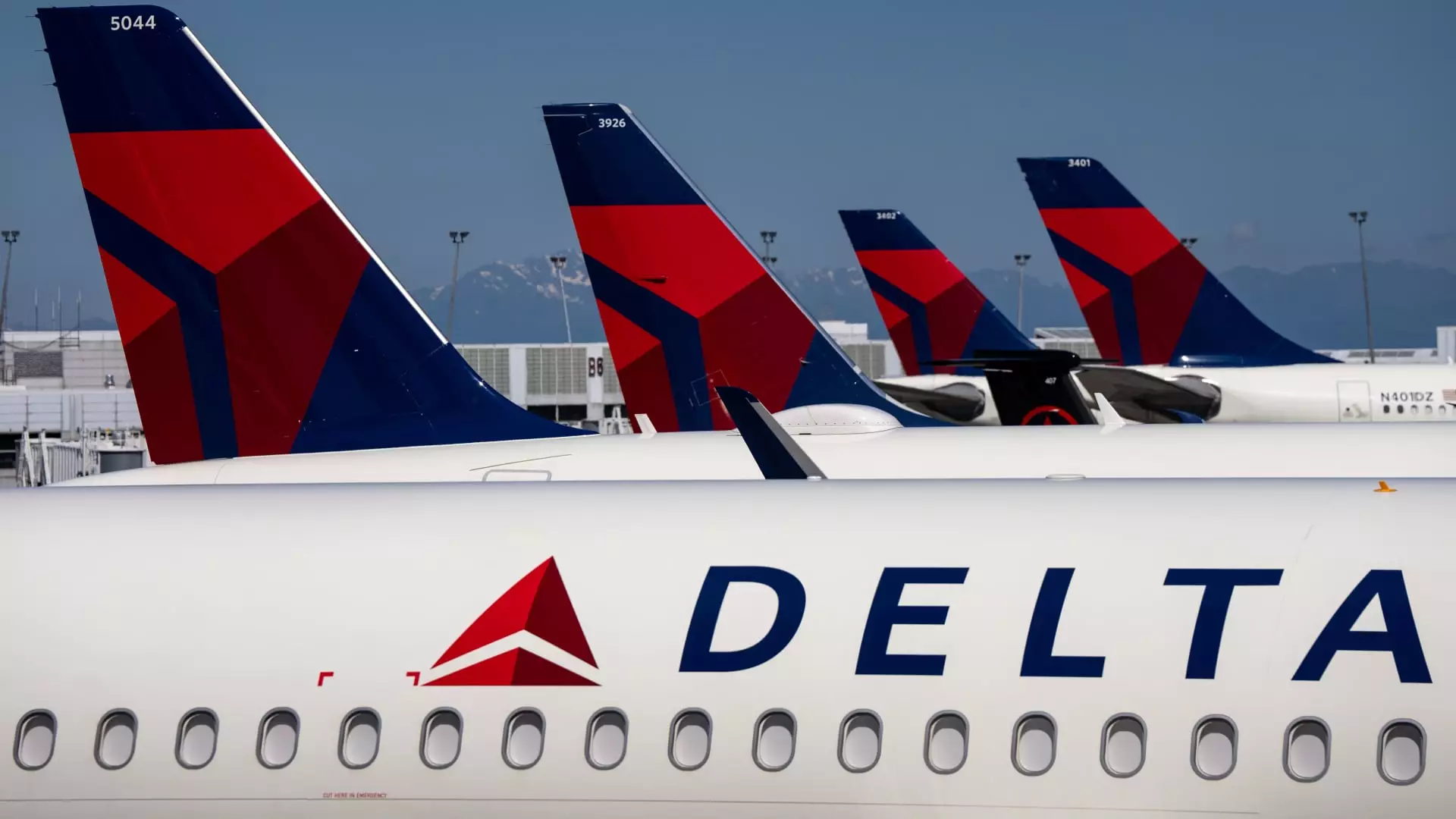Delta Air Lines, once a beacon of profitability in the airline industry, now finds itself navigating stormy skies, torn between the volatility of President Trump’s trade policies and the subsequent erosion of consumer confidence. The company’s recent announcement that it will not expand its flying capacity in the latter half of the year sends tremors through the travel sector and evokes a sense of urgency. As CEO Ed Bastian pointedly critiques the administration’s approach, one can’t help but wonder if we are witnessing the beginning of a significant downward spiral for Delta.
Bastian’s candid remarks reflect a growing anxiety within the corporate sector regarding delicate consumer and corporate spending habits. When the head of an elite airline expresses concerns about broad economic uncertainty, it starkly highlights the fragile nature of market stability. Delta’s forecast of second-quarter revenues fluctuating between a decline of 2% to an increase of 2% is hardly reassuring. Wall Street’s optimistic projections of a 1.9% growth appear increasingly unrealistic. Is this the alarming wake-up call the travel industry desperately needs?
Data-Driven Disappointment
The numbers paint a desolate picture: adjusted earnings per share expected to hover between $1.70 and $2.30 falls short of analysts’ estimations, raising red flags across the board. This misalignment between expectations and actual results is disheartening, not just for Delta but for the entire airline industry, which is grappling with a collective sense of unease. There’s a palpable shift; even leisure and corporate travel, once seen as resilient aspects of Delta’s business model, are facing unprecedented challenges.
Bastian’s additional warning about a “corresponding reduction in broad consumer confidence” reverberates throughout the airline sector, making it evident that marketing strategies and pricing models will need to be reevaluated. In cities across the nation, travelers are reconsidering their plans, opting for local experiences rather than international travel. This transformation in consumer behavior should serve as a wake-up call to airlines that have long taken their customer base for granted.
The Illusion of Resilience
In an interesting twist, Bastian points to international and premium travel as sectors that have remained “relatively resilient.” However, relying on these niches for continued profitability strikes me as precarious. Premium travelers may be tougher to sway with economic downturns, but this demographic alone cannot sustain an airline’s broader financial health. Delta’s historical strength has always been its ability to cater to the masses; can an exclusive focus on premium segments lead to long-term stability?
The decision to freeze capacity raises further questions: Is Delta choosing to play it safe or merely reacting to systemic issues within its operation and the broader economy? While protecting margins and cash flow is a prudent decision, it may inadvertently stifle growth opportunities in an increasingly competitive landscape.
The Impact of Political Uncertainties
Bastian’s remarks on the detrimental effects of the Trump administration’s workforce cutbacks resonate strongly. The cuts not only affect government employees but ripple through the economy, reducing potential fliers and dampening corporate travel. Political moves can create a trickle-down effect that extends beyond immediate policies, impacting industries in unforeseen ways. Consequently, Delta’s operational strategies must be agile enough to withstand these external pressures.
In an era where unpredictability becomes the norm, Delta must recalibrate its approach. This moment should catalyze a re-evaluation of its forecasting and strategic planning, ensuring that they are equipped to counteract larger shifts in policy that threaten consumer behavior. Ignoring the implications of political climates could lead to more profound ramifications for the airline industry.
A Call for Innovation and Adaptation
Ultimately, Delta Air Lines stands at a pivotal crossroads. The company, which once boasted robust growth and profitability, is now grappling with existential questions. The inertia within the industry calls for innovation, creativity, and a willingness to adapt to a fast-evolving market landscape. Without embracing change and cultivating deeper relationships with consumers, Delta risks not just stagnation but potential failure.
The airline industry thrives on trust and adaptability. As Delta reassess its trajectory amid an unpredictable economic environment, the challenge will not just be about surviving this moment but thriving in the years to come. The heart of the airline’s future lies in its ability to innovate and engage consumers at every level. If that doesn’t happen, the tranquil skies of yesterday may very well be replaced by turbulent storms ahead.

